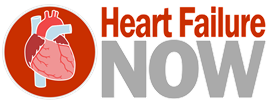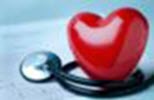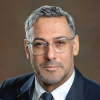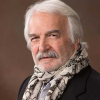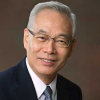Cardiothoracic Surgeon, discusses CABG byass surgery.
What is Local Cardiothoracic Surgeon
A local cardiothoracic surgeon is a medical doctor who performs surgery on the heart, lungs and other chest (thoracic) organs. A local cardiothoracic surgeon will work closely with your local cardiologist if you need heart surgery for heart disease. A local cardiologist is a medical doctor who treats diseases of the cardiovascular system and the blood vessels. If you have heart failure, a heart murmur, have experienced a heart attack, stroke or a genetic cardiac condition, you may work with a local cardiothoracic surgeon.
A local cardiothoracic surgeon may perform cardiovascular surgeries such as cardiac ablation in children, stent implementation, coronary angioplasty, ICD or pacemaker implementation and bypass surgery. If you’d like to learn more about how a local cardiothoracic surgeon can help you manage your cardiovascular health or perform a heart surgery such as heart valve surgery, talk to your local family physician or local cardiologist. A local cardiothoracic surgeon can also work with other members of your healthcare team, including your local registered dietitian, chiropractor, endocrinologist, massage therapist, nutritionist or athletic therapist.
Heart valves are a very important part of your heart’s anatomy, and allow the heart to do the job that it was meant to do. The heart actually comes in two parts: a left heart and a right heart. The right heart’s job is to pump the blood from the body up into the lungs. The left heart will then take the blood from the lungs and pump it out to the body.
How the Heart Valve Can Malfunction
For the heart to do its job, it needs check valves when it squeezes to cause the blood to flow in the correct direction. Each chamber has an inlet valve and an outlet valve. Heart valves can malfunction in two ways. They can be stuck in a more closed position, so the flow through the valve will be restricted. It can also be stuck in a more open way, in which case the blood can leak back through the valve. If these issues should occur, it can result in blood not flowing the way that it should, and can result in issues for the patient. If someone has problems with their heart valve, they typically will develop symptoms at some point. These symptoms can include shortness of breath, tightness of pain in the chest, dizziness, or irregular or rapid heart rate.
The Heart Valve Replacement Procedure
Heart valve replacement is a common procedure performed to replace a valve in the heart that is affected by heart valve disease. The heart valves control the flow of blood by helping it move in one direction through your heart and body. If a valve isn’t working properly, this blood flow and the blood vessels that carry oxygen throughout the body are affected.
Most commonly, heart valve replacement is a major open-heart surgery with a recovery of several weeks. During this procedure, the doctor makes an incision in the chest, and circulates blood outside of the body using a machine to add oxygen to it. The newer procedure, which is a percutaneous valve procedure (otherwise known as a TAVI), is less invasive, but isn’t performed at as many hospitals. The most common tissues used for heart valve replacement are cow tissue, made of the heart sac of the cow, or pig valve, and sometimes a combination of both. Other options are a cadaver valve, or transferring your own valve from another part of your heart.
Following your heart valve replacement, you’ll recover in the hospital. You’ll generally need to focus on a long recovery over several weeks or months.
Talk to your cardiologist if you'd like more information on heart valve replacement.
Useful Resources
Canada
Royal College of Physicians and Surgeons of Canada
Northwest Territories
Nunavut
